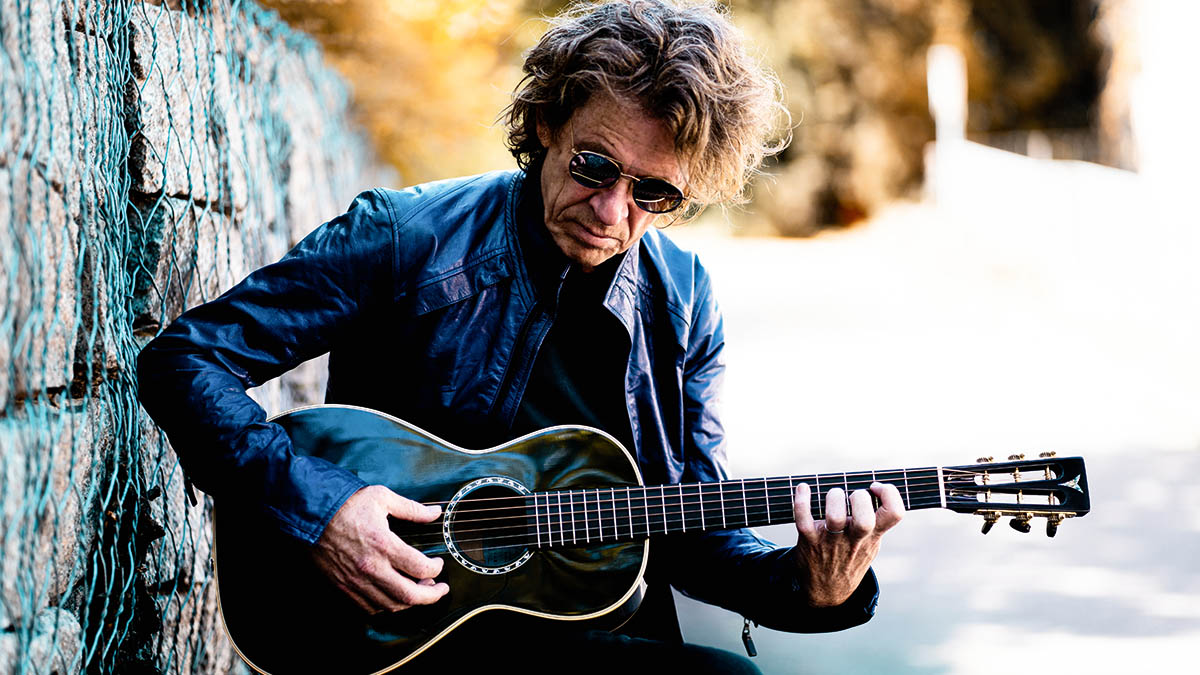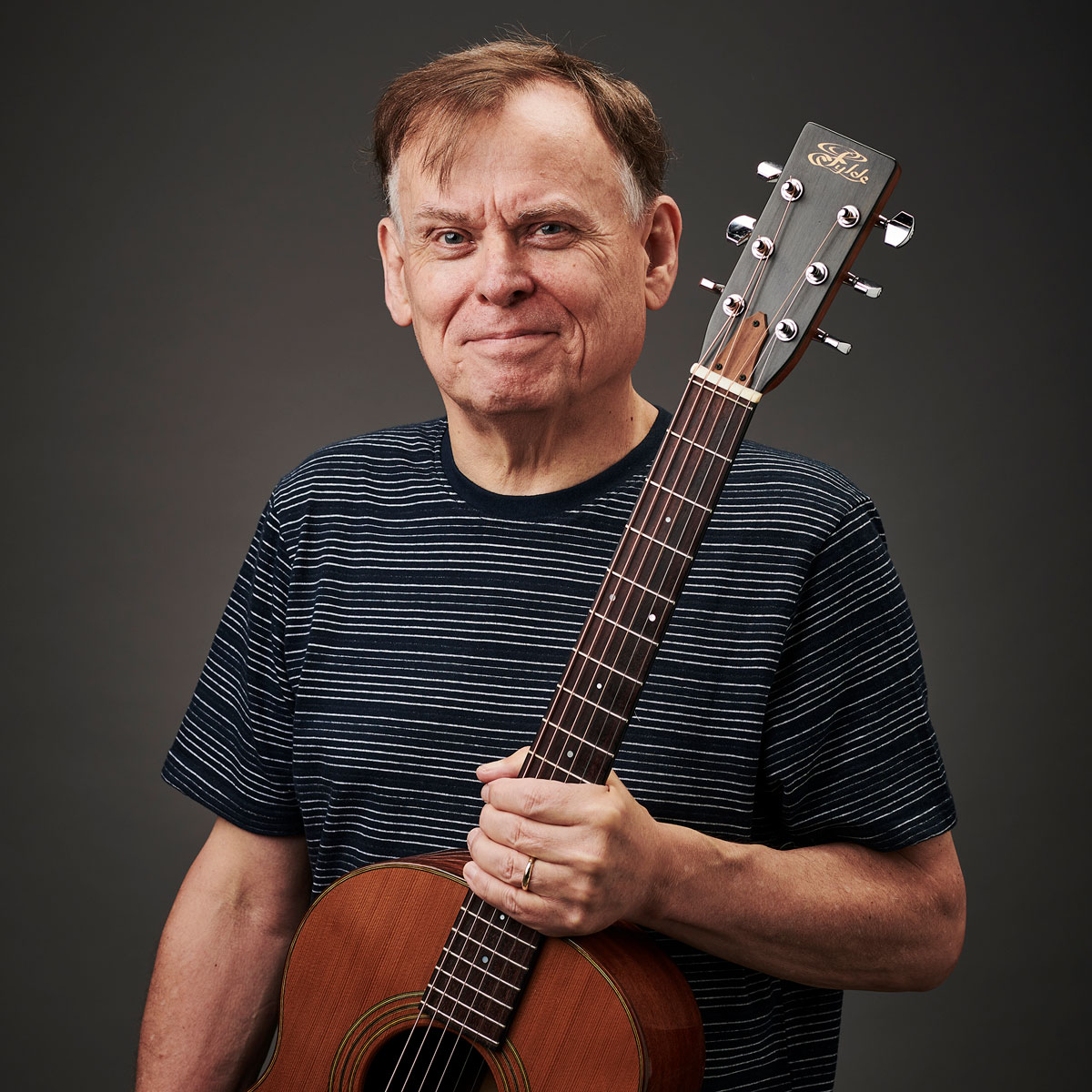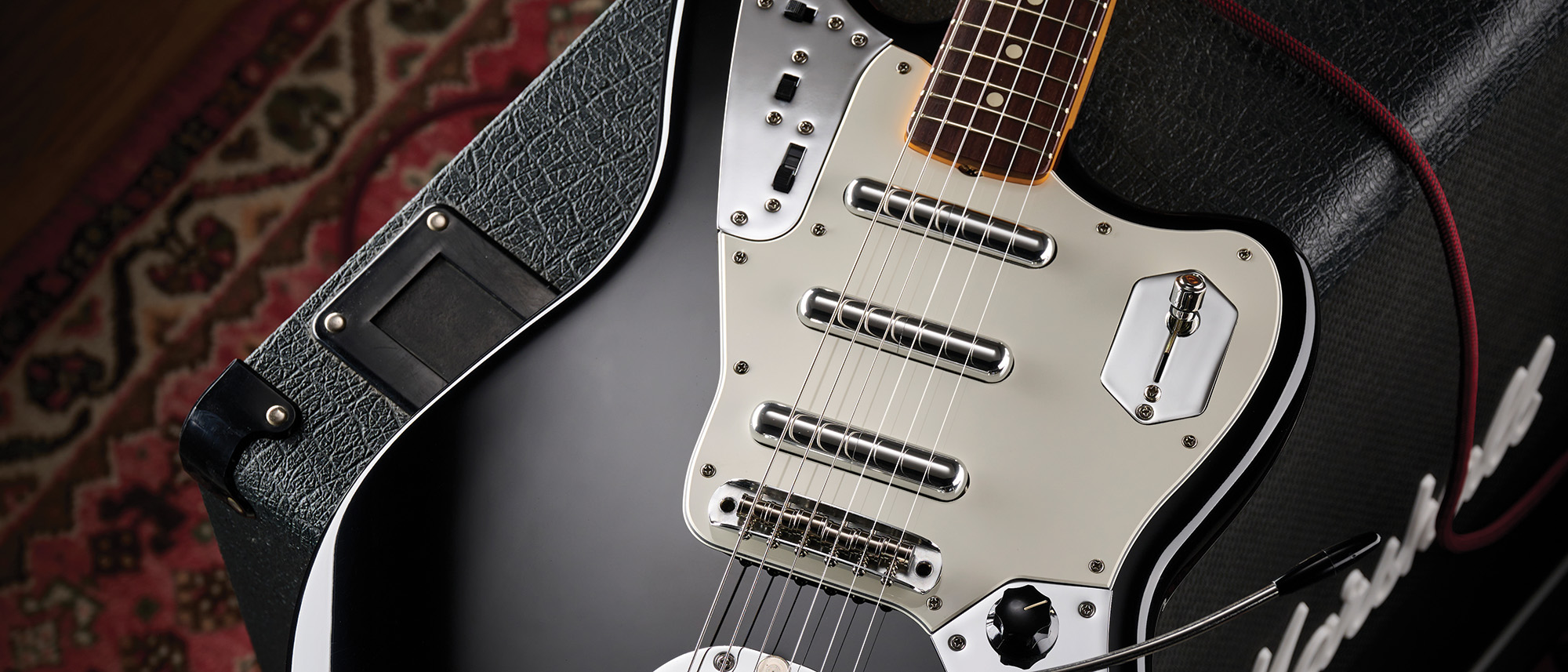Sting guitarist Dominic Miller: “You gave Jeff Beck a tennis racket and a transistor radio, he’d make it sound perfect”
It's not the gear, it's the player says Miller, but then, those vintage Telecasters and ES-335s sure do come in handy

All the latest guitar news, interviews, lessons, reviews, deals and more, direct to your inbox!
You are now subscribed
Your newsletter sign-up was successful
The Sting guitarist mourns a long-lost Gibson ES-335 and reveals a fondness for ’60s Telecasters as he joins us for this edition of Bought & Sold – a safe space for gear obsessives to talk shop.
What was the first serious guitar you bought with your own money?
“I bought a Gibson 335 in 1981. There were a bunch of guitar players who played 335s in those days – it was de rigueur to have a 335 because of Larry Carlton. Everybody wanted to sound like Larry Carlton and I was no different. I can’t remember how much it cost – probably about 350 or maybe 500 quid. That was the market value in those days. And then I sold it like a mug.
“Before then I was just using acoustic guitars. I had an Ovation, the Glen Campbell Ovation, and another one I can’t remember. Just two different Ovations. I was really into them because I wanted to be like Al Di Meola and John McLaughlin, you know? I also had a bunch of Spanish guitars. I always had good classical guitars, but they were, like, run of the mill – you know, 200 quid guitars.”
What was the last guitar you bought?
“The last guitar I bought was a 1968 Fender Telecaster. I bought it in Los Angeles about six months ago. I always wanted to have one with a maple neck and I found one – that’s the most money I’ve ever spent on guitar, for sure. It’s like a wild animal that you need to tame.
“That’s what I like about them, they have so much character. Everything works well together. I love the balance of the neck and the body; it seems to pick up all kinds of overtones from everywhere, more than a Strat does. I don’t know why because I’ve always been a Strat kind of guy; I just wanted to play a Tele because I’ve been using Bill Nash Teles for a long time now.
All the latest guitar news, interviews, lessons, reviews, deals and more, direct to your inbox!
“But then I thought, ‘Why don’t I treat myself to a real one?’ When I first picked it up, I thought it’s not as good as the Nash, but then cut to six months later and it’s actually 10 times better, I think, because I’ve learned how to play it. The sound didn’t come to me immediately. I had to find it. I think the better the instrument, the harder it is to make it sound good immediately.”
What’s the most incredible find or bargain you’ve ever had when buying guitars?
“I was in New York and there was this guitar shop in Soho. I saw this Gibson SG in the window, which was kind of green with one pickup. It looked so ugly – I felt like I was in a pet shop and it was the ugly dog that nobody wants, and it was only $500 or $600.
“I think it had been sitting in the shop for ages because nobody wanted an olive green SG with one pickup. So I bought it and gave it to my daughter Misty. 500 bucks? I’m sure it’s worth more than that. And it sounds great.”
Have you ever sold a guitar that you now intensely regret letting go off?
“Yeah, well, I sold the 335 and I totally regret that because it was such a good guitar. But I was skint at the time. I part-traded it in for a white Strat, which I never really liked. But I just needed the money. I’ve been looking for it ever since. You know, it might show up somewhere. I thought that maybe I’ll see somebody playing it in a club or something.”
What’s the strongest case of buyer’s remorse you’ve ever had after buying gear?
“Probably the Akai S1000. I thought, ‘I’ve got to have an S1000, everyone’s got one.’ This was when I started doing more studio stuff. I bought it because it’s a sampler and wow, it could do three seconds [sample time]. I thought, ‘This is amazing!’ I mean, now you can do that on your phone. But it was a total waste of money because I never used it. Well, maybe I used it once. And I didn’t get the same money back that I paid for it. I paid too much money for it. It just looked cool in my rack.”
I can categorically say that the best advice I can give is play an electric guitar acoustically for half an hour before you plug it in and establish a relationship with it.
What’s your best guitar-buying tip?
“I can categorically say that the best advice I can give is play an electric guitar acoustically for half an hour before you plug it in and establish a relationship with it. If you can get a good sound out of a guitar acoustically, there’s a very good chance it’s going to sound good when you plug it in.”
When was the last time you stopped to stare in a guitar shop window or browsed online and what were you looking at?
“I don’t qualify on that nerd level [laughs]. However, when I see guitars in a shop window, I do get that sort of euphoria that I used to get when I was a kid. Very often it’s not a music shop, it’s probably a pawn shop. I like to see guitars that stick out randomly in an antique store or junk store, and whatever it is, it gives me that same endorphin rush.”
If forced to make a choice, would you rather buy a really good guitar and a cheap amp or a cheap guitar on a top-notch amp?
“A really good guitar and a cheap amp, for sure. It’s a no-brainer. You find yourself with whatever gear you’ve got. You know, you gave Jeff Beck a tennis racket and a transistor radio, he’d make it sound perfect. The amp helps you, it does exactly what it says on the label – it amplifies what you’re doing. The guitar is going to make the sound. So I would always go for a good guitar over a good amp.”
I don’t really understand how pickups work, to be honest with you
If you could only use humbuckers or single coils for the rest of your career, which would you choose and why?
“I don’t really understand how pickups work, to be honest with you. I would probably say single coils: I’m more of a single coil kind of guy. There’s something a bit more kind of dangerous about the sound of a single-coil pickup. But it all depends on the guitar, you know? If I’ve got humbuckers or single coils I’ll work towards what I’ve got. I’ll find the sound I’m looking for. So I don’t really have a preference. But if I had to make a finite choice, it would be a single-coil pickup, because I just find them a little bit more volatile.”
Dominic's go-to rig
“I’ve got a few guitars. Principally, it’s the ’68 Tele, then I’ve got the two Nash backups, and I use a Chet Atkins nylon-string guitar. Those are the guitars I’m using for this tour. I use two Mesa/Boogie Lone Star amps with two 2x12 cabs. The guitar is going into a pedalboard with a bunch of very garden variety pedals. I go into a Boss Compressor Sustainer, then I’ve got either the Maxon or the Ibanez Tube Screamer.
“I like to use a flanger as well, and/or a phaser, depending on my feeling that day. I also use a tremolo pedal and I’ve got a wah-wah pedal, too. I use the Line 6 delays, an Ernie Ball volume pedal and, of course, the important pedal is the Boss Chorus pedal and I run it in stereo. Running that pedal in stereo, it’s really mega and the front-of-house guy obviously gives me a good sound out front.”
With over 30 years’ experience writing for guitar magazines, including at one time occupying the role of editor for Guitarist and Guitar Techniques, David is also the best-selling author of a number of guitar books for Sanctuary Publishing, Music Sales, Mel Bay and Hal Leonard. As a player he has performed with blues sax legend Dick Heckstall-Smith, played rock ’n’ roll in Marty Wilde’s band, duetted with Martin Taylor and taken part in charity gigs backing Gary Moore, Bernie Marsden and Robbie McIntosh, among others. An avid composer of acoustic guitar instrumentals, he has released two acclaimed albums, Nocturnal and Arboretum.




